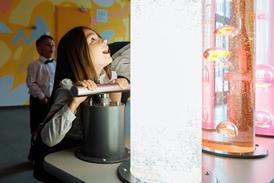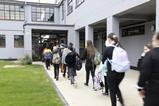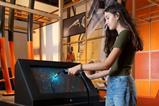Wicked’s UK executive producer Michael McCabe talks to us about why the story of Wicked resonates with young people and the impact theatre visits have.
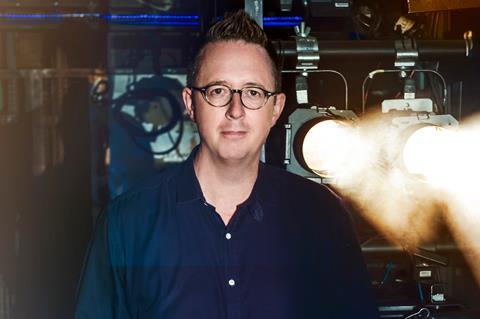
Now in its 17th year, Wicked is one of the most successful musicals of all time and has been seen by more than 11 million people in London alone, performing over 6,000 times at the Apollo Victoria Theatre.
Michael McCabe’s career spans 40-years (including being the original marketing director of Mamma Mia! worldwide) and has earned him four Olivier Awards.
An important part of the legacy Michael and his team are creating is the impact of the show, and the messages it features, on young people.
Michael McCabe on the importance of getting school groups to the theatre…
Before we even opened the show, we had a large number of teachers come to the performance and I did a Q&A afterwards. They were all saying that the show ticks so many boxes. As time has evolved, along with learning and the priorities, particularly coming back from lockdown, we have been made very aware of how important wellbeing and self-confidence has become.
It has been a huge amount of work and we’re trying to break down as many barriers as we can to coming to the theatre and engaging in cultural learning.
“We’re more than aware of how challenging it is for drama and music; there’s not the value placed on those creative subjects that there should be.”
It’s become a really important part of what we do every day. As it was back in 2006 when I met those teachers, it’s every bit as rewarding now to see school kids react to Wicked. It’s very much our commitment and privilege to be able to do this work – we’re still tweaking and adding resources. It’s a work in progress but we’re really happy with where it sits right now.
You want to know that every kid who’s interested can have that opportunity. It’s about a legacy for me and also giving something back.
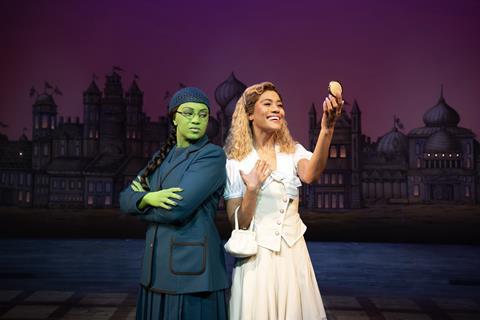
On the development of Wicked Active Learning…
Lockdown was the opportunity to develop Wicked Active Learning. I used the time to research and write and speak to lots of teachers. What was already our commitment to education grew into a whole cultural learning programme.
I passionately feel that the show has a relevance and an important story to tell to young people and it’s just about trying to understand the challenges of going on a school trip and how we needed to develop more materials to help support that. For example we now have a video that shows teachers the venue and everything that’s going to happen.
A big part recently has been building up confidence again and we have been developing lesson plans and more content to help. We launched the new Wicked Active Learning last year and the engagement has been incredible.
About Wicked
It tells the story of an unlikely but profound friendship between two young women who first meet as sorcery students at Shiz University: the blonde and very popular Glinda and a misunderstood, green-skinned girl named Elphaba.
Following an encounter with The Wizard, the friendship reaches a crossroads, and their lives take very different paths. Their extraordinary adventures in Oz will ultimately see them fulfil their destinies as Glinda The Good and the Wicked Witch of the West.
On the impact theatre has on young people…
It’s about trying to get to the schools that we most want to be there. It is a unique experience and if you can convert one child into becoming a theatregoer then we’ve ticked that box.
We’re more than aware of how challenging it is for drama and music; there’s not the value placed on those creative subjects that there should be.
It’s not about becoming an actor; it’s about life skills, skills to help young people with interviews for jobs or doing a presentation at work. It doesn’t matter what field you work in, drama training is so vital. Teamwork, self-confidence… these are all things you gain from drama and we have to keep banging that drum about the value of those subjects.
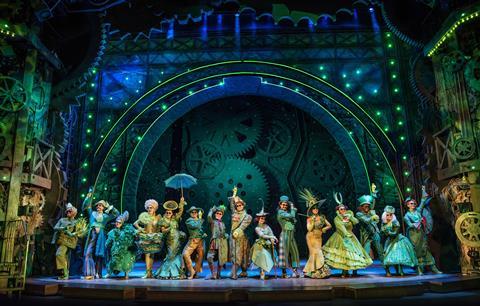
On how Wicked has evolved over the years…
The core of the show is always very true to the story and where a new member of cast comes in, that brings a different energy and new questions but there’s so much trust in the material.
We talk a lot about how the story of Wicked resonates more strongly as the show has gone on. This whole notion of corrupt leaders and distractions to lead you away from what’s really going on feels much more potent now than when the show opened. The change is how audiences react to it.
Something we’ve become very aware of with schools is just how much they engage with the character of Elphaba who has become such an incredible role model for young people. Children also question how the wonderful Wizard of Oz leader has got to the position he’s in. They see straight through all of the bells and whistles and they identify him so quickly as a fake.
“It has been a huge amount of work and we’re trying to break down as many barriers as we can to coming to the theatre and engaging in cultural learning.”
On his favourite part of the show…
No Good Deed. I know everyone tends to lean towards Defying Gravity, which is an extraordinary moment in the show but No Good Deed is the moment Elphaba surrenders to what everyone is saying about her - that she’s a wicked witch.
It’s that moment, the song and the staging of that song - for me, it’s a complete moment of theatre. It’s a spine-tingling moment which is incredibly powerful.
Wicked Active Learning is the West End show’s cultural learning programme. Designed for Key Stage 2 and above, teachers can book workshops and Q&As alongside a host of free resources available which can be used before or after seeing a performance.
Schools also benefit from special ticket rates and free teacher ratios.




